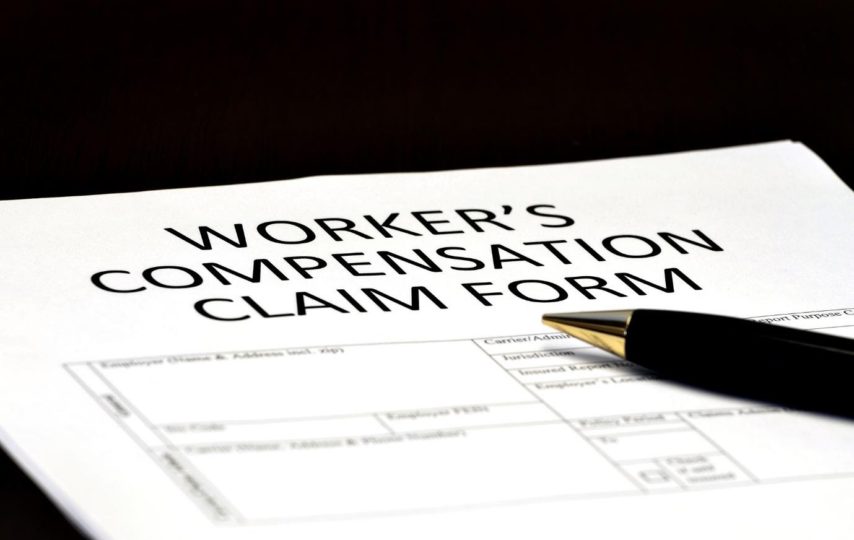Did you know your employees could sue you for workplace injuries? As an employer, you’re obligated to ensure your workplace is safe for all your employees. Still, sometimes accidents are inevitable, and when an employee gets injured, workers’ compensation insurance provides coverage.
There are two main purposes of workers’ compensation insurance. First, it compensates employees that get injured on the job and ensures their medical bills are settled. They also get a portion of their lost wages while unable to work due to the injuries. Second, it protects you as the employer from financial loss when sued by employees injured on the job.
Do Employers Pay for Workers’ Insurance Cover?
Workers’ comp insurance is a state-run program. Employees must get compensated for workplace accidents. If the accident is fatal, the insurance cover offers death benefits to the dependents of the employee.
Employers pay for the workers’ comp by contributing to state-run insurance programs or insurance companies.
Every state has different workers’ compensation statutes. The states determine how much injured employees are entitled to, what kind of injuries to cover, and how medical coverage is delivered.
What Does the Workers’ Compensation Cover?
Workers’ compensation covers any kind of injuries sustained in the workplace or on the job. If an employee slips and falls on the company premises, they’re entitled to compensation. If they get into an accident outside the company premises but in the course or scope of employment, they should also get compensation.
For example, if an employee gets into an accident while driving for work purposes, they are entitled to compensation. This is regardless of whether they were using the company car or personal vehicle. However, it doesn’t cover accidents to and from work.
Workers’ comp also covers occupational illnesses and diseases contracted on the job. This is for employees that handle and are exposed to dangerous or hazardous chemicals.
Here are some of the things workers’ compensation covers.
Medical Expenses
Workers’ compensation offers medical coverage for injured employees. It could be anything from emergency room visits, prescriptions, or surgeries when necessary.
Depending on the extent of the injuries, medical bills can accumulate quite fast. Employees who may not be able to afford those expenses without this coverage.
Missed Wages
Workers’ compensation also pays employees their lost income during the period when they can’t work due to injuries.
For instance, if your employee burns their hand on the job, they may not be able to work for a few weeks or a few months, depending on the extent of their burns. During this time, they won’t be working and will lose income, but the workers’ comp insurance will cover it.
Ongoing Costs
Some injuries can be so severe that they need regular medical checkups or multiple surgeries or therapies.
In this case, the insurance will need to cover their ongoing medical expenses and other costs incurred due to the injuries.
Disabilities
If the accident leaves your employee with a disability, the insurance cover will pay for their medical expenses and lost wages as well.
In this case, they may receive disability benefits or a lump sum of money.
Funeral Costs
If the accident was fatal and an employee loses their life, the workers’ comp will cover funeral costs. Additionally, it will provide death benefits to the dependants or beneficiaries.
Are All Employees Covered by Workers’ Comp?
There are several factors that determine which employees get worker’s compensation insurance coverage. Even though requirements may vary from state to state, most states require that it covers full-time employees. There are different laws for interns, temporary workers, and independent contractors.
This makes it imperative for you to understand the laws in your state. Some states don’t require coverage for casual workers and farmhands. Others include insurance agents, real estate agents, business owners, or business partners.
Federal employees are also covered by the federal workers’ comp and not the state. Some states also stipulate the minimum number of employees a business must have. Check all these requirements as you inquire about the workers’ compensation insurance cost.
How Does the Workers’ Comp Process Work?
No matter which state you run your business, it’s important to start the workers’ comp process as soon as the accident happens. As an employer, you need to make sure the employee gets immediate medical attention as soon as they notify you about the injury.
The employee is obligated to send you a notice about the injuries. After this, you’ll need to contact your workers’ compensation insurance provider to make a claim.
The insurance company will review the workers’ compensation claim and either approve or deny it. There’s a time limit for when you can send the claim to the insurance company, so it’s crucial that you understand the time limitations in your state.
Understanding the Workers’ Compensation Insurance Policy
There are many workers compensation facts you need to understand. The insurance policy covers two parts, which are workers’ compensation and employer’s liability. This provides coverage for you as the employer in case your employee sues you.
Employers’ liability will also insure you in other situations, such as “third-party over suits.” This happens when the employee sues a third party, then the third party chooses to hold you responsible.
For instance, if your employee is injured by a machine and sues the manufacturer of said machine. The manufacturer could sue you, citing that you made modifications to the machine or improper use, which resulted in the accident. The spouse of the injured employee could also sue you.
Everything You Need To Know About Workers’ Comp
Having a workers’ compensation insurance policy is one of the responsibilities of an employer. It will protect you and your employees, so the sooner you get one, the better.
For more informative posts, please check out more of our website today!













